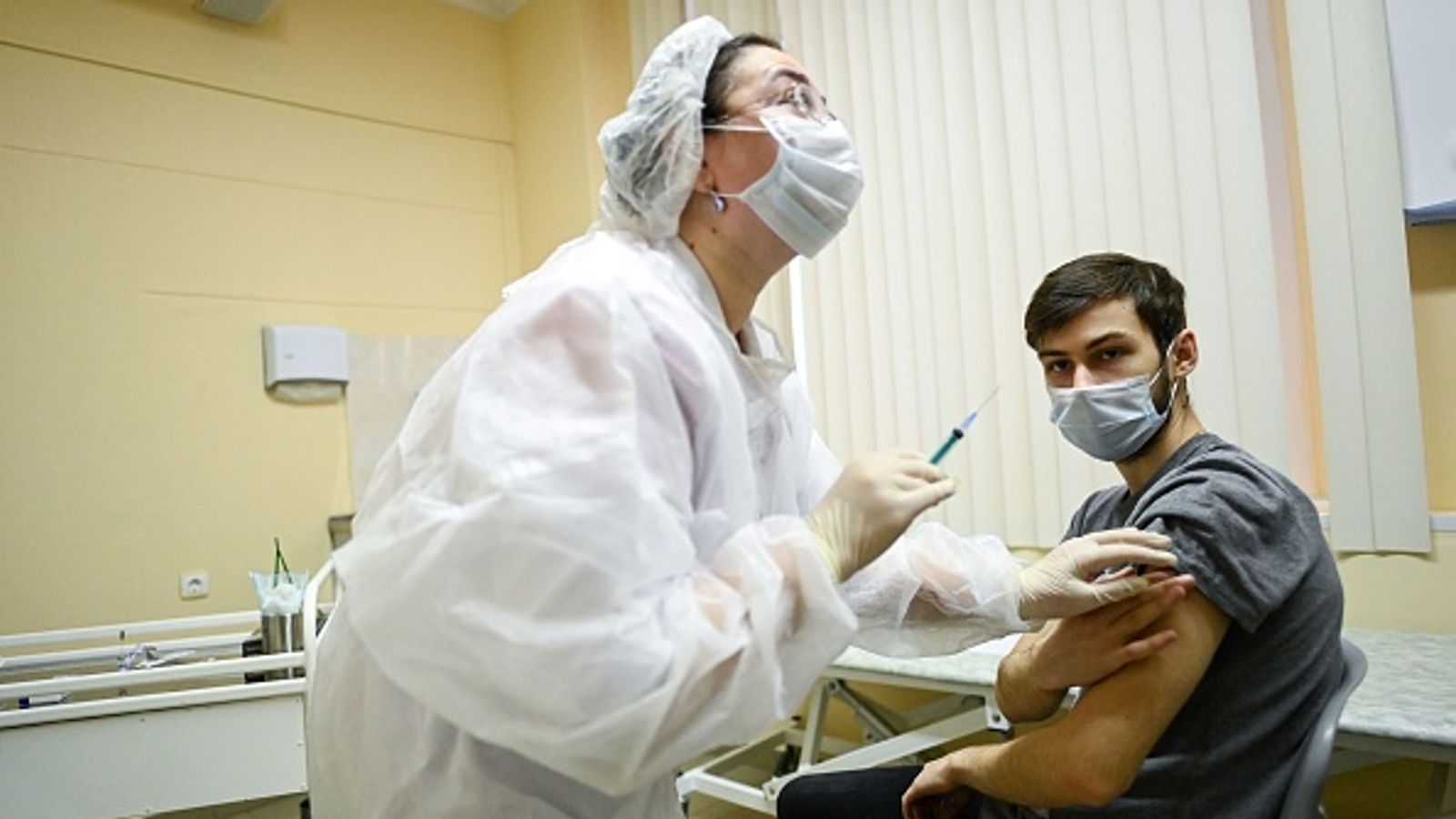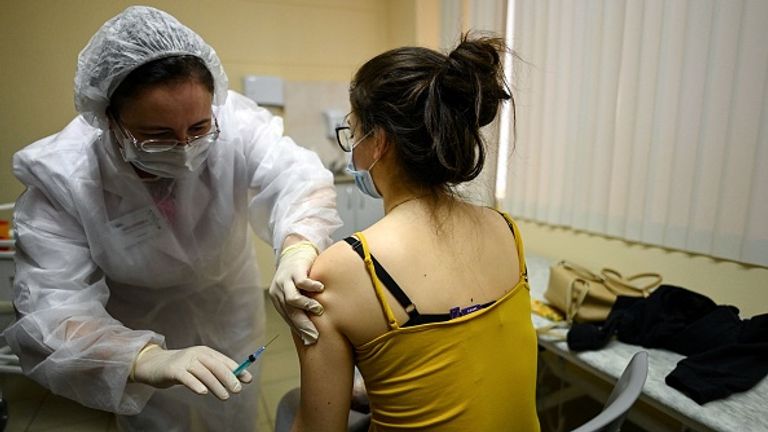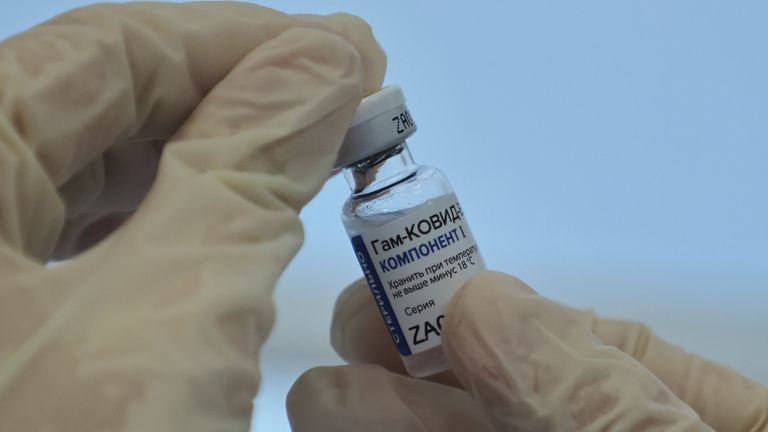There is hardly a rush to get the vaccine, here at city clinic number 68 in Moscow.
It is one of 70 polyclinics across the capital to offer Russia’s first registered vaccine, Sputnik V, to medics, teachers and social workers starting today.
Only 17 people have signed up.
Registration opened on Friday. You have to be aged between 18 and 60, have no chronic medical conditions and you can’t be pregnant or breastfeeding.
Dmitry Buriy works in a bank but signed up anyway. Maybe he hadn’t read the small print – that you need a certificate proving you are from one of the at-risk groups. He was turned away.
“I’m disappointed,” he said. “We still know so little about COVID-19 or how bad the after-effects might be so better to get the vaccine now.
“I think the Russian vaccine is just as good as foreign ones. I’ve been reading a lot about it and I feel I can trust it.”
This Moscow “launch” is more a PR event than anything else.
One hundred thousand people have already received the vaccine.
Forty thousand of those are volunteers in Sputnik V’s Phase 3 trials but another 60,000 medics and doctors have also taken the vaccine.
On the same day the UK licensed the Pfizer-BioNTech vaccine for use, President Vladimir Putin urged his officials to launch “mass vaccination” by the end of the next week.
Top marks then for Moscow’s mayor for rolling it out first.
“I’m not scared of taking it,” says Svetlana Belusova, a 36-year-old medic.
She already had the virus earlier this year and doesn’t want it again.
“I think vaccination will help stop the pandemic. In half a year I think everything should start getting better,” she added.
It needs to. As elsewhere, the numbers are not encouraging. Moscow today registered an all-time high for the virus of 7,993 cases over the last 24 hours.
There were 28,782 across the whole country, another all-time high.
All told Russia has had 2.4 million cases and 42,000 deaths.
The comparatively low death toll has consistently raised eyebrows but officials insist it is correct.
Anna Gusalova works in one of Moscow’s bigger hospitals.
“It’s scary. I know many people who are sick and lots who have died in my circle of friends, mostly older people,” she says.
“We’ve always had vaccinations since childhood. I don’t see why the vaccine should be any worse in Russia than in other countries.”
I ask if she is surprised at the rush to get Sputnik V registered and into circulation.
“Doesn’t every country want to get a vaccine first?”, she asks.



